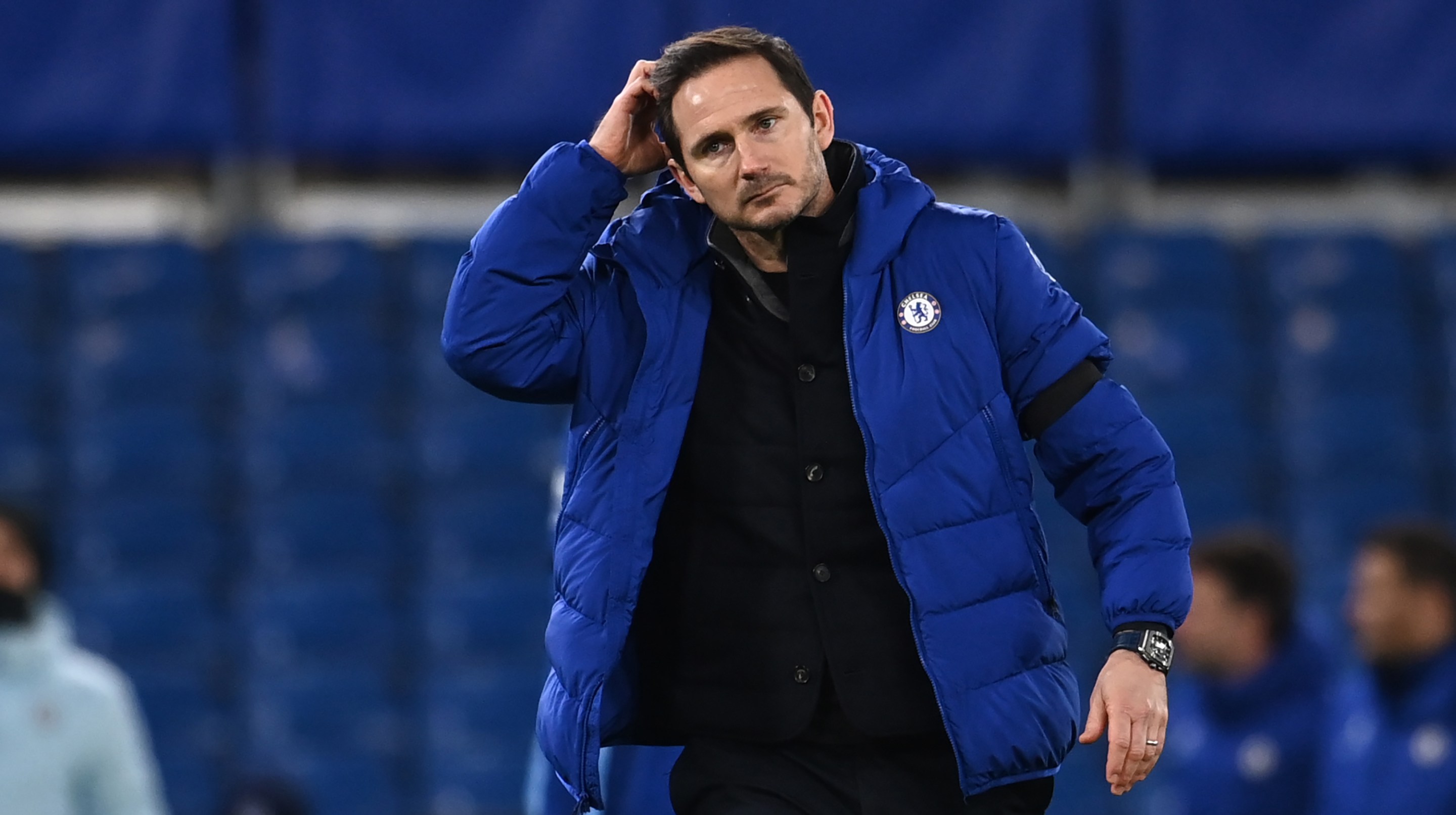On December 5, a confident and in-form Chelsea beat Leeds United by a score of 3–1. The win extended the Blues' unbeaten streak to 16 in all competitions, and moved them into the top spot in the Premier League table. Eleven matches into legendary-player-turned-manager Frank Lampard's second season, coming off an exciting and expensive summer transfer window, everything at Chelsea was looking up.
Since then, the London club has won only a single match in seven tries. The stretch has included losses to Everton, Wolves, Arsenal, and most recently, Manchester City, a nose dive from the top of the table into eighth place, and credible reports that Lampard might be out on his ass sooner than later. The swift fall from grace has many asking the obvious question: What, exactly, is wrong with Chelsea?
It's tempting to answer that question by focusing blame on Lampard, or the players, or the attacker-heavy summer recruitment strategy. And while each of those groups and factors do bear some culpability for Chelsea's recent floundering, it's important not to overlook the influence of one little thing that often goes ignored in these conversations: the impact of the ongoing pandemic that has wreaked havoc on every facet of life and society for going on an entire year now. It seems reasonable to surmise that the direct and indirect effects of COVID-19 on Chelsea's and every other sports team's season play quite a big role!
After all, this is no normal Premier League season. The midseason stoppage of last season meant players had an abbreviated offseason, no real preseason to speak of, and an almost criminally jam-packed schedule this season. Oh, plus that potentially deadly and debilitating virus going around that has struck some players—like, for example, Chelsea's own Kai Havertz—especially hard, causing harm that hasn't just gone away once they were no longer infectious. Players are tired, teams have very little training time to develop new strategies and compatibilities between matches, and sides have struggled to integrate their new roster additions. Not exactly a recipe for success!
With its still-newish manager, its cadre of new and highly specific players to integrate, its season-long injury troubles, its new talisman Havertz's difficult recovery from illness, and its four-tournament calendar (it competes in the Premier League, the Champions League, the League Cup, and the soon-to-start FA Cup), Chelsea is a prime example of a club suffering the effects of this impossible season. And the Blues aren't the only ones. All the best clubs in England have struggled maintaining the kind of form you'd expect during a typical season. Take reigning-champion and league-leading Liverpool, for example; after failing to win just eight and six matches during the 2018–19 and 2019–20 seasons, respectively, the Reds have already dropped points in seven matches this year, not even halfway through the campaign. The coronavirus effect is real, and no one is immune.
Granted, neither Lampard nor the players are completely innocent in the team's recent spat of bad results. Lampard has not figured out how to use all his new attacking toys to create a cohesive, well-balanced whole; the Blues are amongst the league's best in goals scored yet are in the middle of the pack in goals conceded. And where Lampard deserves to be judged most harshly is for overworking and overplaying his players to the point of breaking, as Chelsea's long injury list during his tenure attests. (Protect Pulisic!!!) The players, too, can be chastised for failing to do their all. While Lampard's tactics haven't helped the team keep many clean sheets, the attacking and midfield players barely even try to shield the defense after losing the ball.
For those reasons, it would hardly be a tragedy if Lampard lost his job in the middle of the season, and it could be an actively good thing if his potential successor knew better than to run Chelsea's best players into the ground. But to put the bulk of the blame for the club's disappointing results on Lampard makes no sense, just as it makes no sense to blame Jürgen Klopp for Liverpool's or Pep Guardiola for Manchester City's or Paul Pogba (who, like Havertz, has gotten flayed by the public for not meeting expectations, without taking into account the lingering effects of his bad case of COVID-19) for Manchester United's. Judging anyone, player or manager, by normal standards during the most abnormal of seasons misses the forest for the trees. Which is to say, if you're looking to find what's wrong with Chelsea or any other Premier League team, you'd better start with the lungs.






